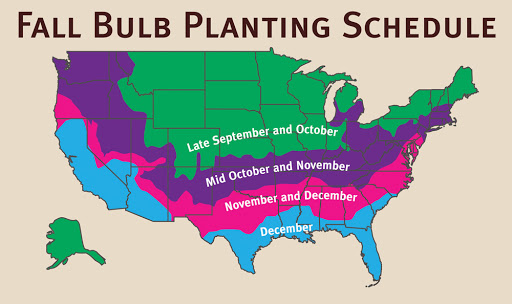I am a landscape designer and have been purchasing 1000's of spring flowering bulbs from A.D.R. Bulbs for 100's of clients in the last 20 years. The bulbs have always been of top quality and if there were any problems, they have been quick to rectify. My orders are often complicated with many varieties and different amounts and they have always filled and delivered everything on time with the best customer care and attention to detail. The pictures in their catalog and website are beautiful. I have visited their facility in NY and was impressed with all their handling equipment and organization. I would highly recommend A.D.R. Bulbs to anyone in the wholesale trade who wants to purchase quality bulbs and work with genuinely nice people.
Nancy Greenlee
, From The Ground Up
« Previous Plant | Next Plant »
Crocus Species 'Botanical Mixture'
Crocus
Species Crocus Mix bursts into bloom in late winter to early spring, featuring a vibrant array of white, yellow, purple, and striped varieties. These petite, cup-shaped flowers create a striking contrast against fresh green foliage, forming a colorful carpet that signals the arrival of spring. Growing 3 to 6 inches tall, they thrive in full sun to part shade and prefer well-drained soil.
Ideal for naturalizing, rock gardens, borders, and lawns, this mix is deer-resistant and reliably returns year after year. As an early-season nectar source, it supports pollinators while bringing effortless beauty to the landscape.
68.75
Crocus Calculator
When should I plant Crocus Species 'Botanical Mixture'?

Growing and Maintenance Tips for Crocus Species 'Botanical Mixture'
Planting: Plant species crocus corms in fall, about 3 inches deep and 2 to 3 inches apart, with the pointed end facing up. They naturalize well, so choose a spot where they can spread over time.
Location: Full sun is ideal, especially in early spring before deciduous trees leaf out. They also perform well in light shade.
Soil: Well-drained, moderately fertile soil is best. Sandy or loamy soils are ideal; amend clay with compost or grit.
Watering: Water after planting and during active growth in late winter and early spring. Once dormant, they require little to no water.
Temperature: Hardy in USDA zones 3–8. No winter protection needed in most climates.
Fertilization: Apply compost or a low-nitrogen fertilizer in early spring as growth begins.
Pruning: Allow foliage to die back naturally after flowering to nourish the corms for next year.
Propagation: Naturalizes easily by offsets and seed. Divide clumps in summer when dormant if overcrowded.
Pest & Disease: Generally pest-free and deer-resistant. Rodents may dig up corms—planting with gravel or using deterrents can help.
Plant Characteristics
Additional Information
| Height | 4 Inches |
| Spread | 2-4 Inches |
| Spacing | 2-4 Inches |
| Hardiness Zone | 3-8 |
| Color |
Multi-Color |







Check back soon for additional details.